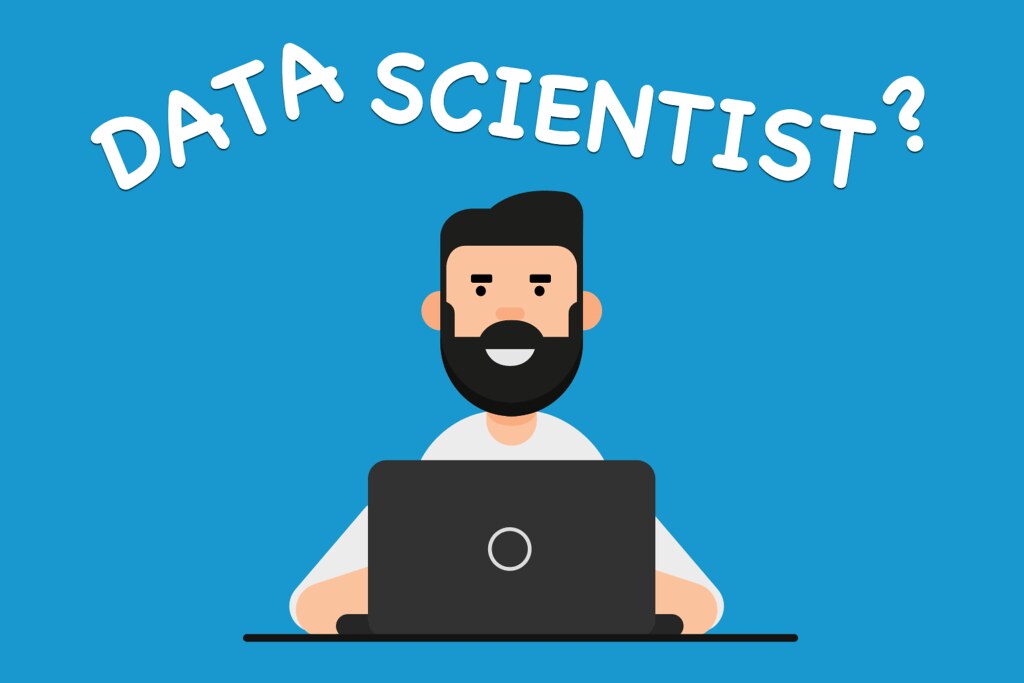What is the difference between a data scientist and a machine learning engineer?
In fact, they have many similarities, so a lot of people confuse these two jobs. However, their different paths made a significant difference.
To discover the distinctions between the two professions, let’s read on to see!
What Is A Data Scientist?
Data scientists are analytical professionals who use their knowledge of social science and technology to identify patterns and manage data.
They seek solutions to business problems using their expertise in the industry, their understanding of the context, and their skepticism toward stereotypes.
The tasks of this role may involve creating methods for data analysis, getting ready data for the analysis, analyzing, evaluating, and presenting data.
Besides, they also create models from data using computing languages and integrate models into applications.

Here are some responsibilities they might perform:
- Discover insights by identifying trends in datasets.
- Create data techniques and algorithms to predict outcomes.
- Use ML techniques to increase the quality of data or service offerings.
- Share recommendations with the top staff and other groups.
- Utilize data analytic tools like R, Python, Java, or SQL.
- Keep abreast of developments in the field of data science.
What Is A Machine Learning Engineer?
A machine learning engineer is a highly skilled programmer who researches, develops, and designs self-running software to automate prediction models.
To help create high-performance ML models, ML engineers must evaluate, organize, and analyze data as well as run tests and optimize the learning process.
ML engineers also create any algorithms utilized to filter through relevant data.
They even assist in scaling predictive models to best suit the volume of data that is pertinent to the organization.
These engineers frequently collaborate with data analysts, data scientists, IT professionals, DevOps experts, data engineers, and software developers as part of a data science team.

An ML engineer’s tasks mostly rely on the project, business, and sector. Below are the main tasks they have to carry out:
- Examine and modify data science concepts.
- Create systems for ML
- Find and use the right ML techniques and algorithms.
- Create ML apps by the specifications
- Pick suitable datasets and data model techniques.
- Run tests and experiments with ML
- Utilize test findings to perform a statistical study
- System training and retraining as appropriate
- Extend current ML frameworks
- Keep up with changes in the industry.
Key Differences
Salary
The machine learning engineer’s salary is about $130,489 on average.
In fact, it is one of the highest-paying technology occupations due to the high need for ML engineers across all industry sectors.
Similarly, with an average base pay of $120,000, the job of a data scientist was ranked third in the Best Jobs in America for 2022 survey.
Job opportunities
The American Bureau of Labor Statistics predicts a 31.4% increase in employment for data scientists between 2020 and 2030. An expected 19,800 jobs should become available during that time.
Technology businesses are hiring many types of data scientists in a range of sectors so that they can find work there.
The need for employees who can sort through these masses of data is increasing along with the requirement for big data analyses.
As you can see, ML engineers make slightly more money than data scientists. However, as ML is a relatively new field, there are more prospects for data scientists to get employment.

Skills
Most of a data scientist’s talents are technical, such as building and maintaining databases. However, because they frequently respond to data requests from other departments, including marketing or studies, data scientists benefit from possessing great interpersonal skills.
Since they operate in various industries, having academic coursework or professional expertise in a particular sector may be advantageous.
After a master’s degree in data science, you can be eligible for professions. It’s vital to determine which organizations and subject areas are the greatest fit.
Unlike data scientists, a career as an ML engineer is not something you enter into from the beginning.
To advance to the role of ML engineering, you can begin with other data engineering positions. A data analyst, data scientist, or data engineer may be the best choice if your background is more in data.
If you want to work as an ML engineer, you can seek undergraduate degrees in mathematics, computer science, computer programming, and data science.
Programming language
Experts claim that several programming languages are more suited than others for ML applications. Many engineers choose an ML language depending on the kind of business problem they are working on.
Most ML engineers favor using Python for natural language processing issues while also favoring Python or R for sentiment data analysis activities.
Data science programming languages include Python, R, Java, Scala, C++, and SQL. These languages provide high performance and productivity for handling enormous volumes of data.
Trends
Although data science is still a lucrative field in both industry and academics, there has recently been a minor shift in industry attention toward creating scalable and dependable infrastructure.
The IT industry is considerably more needed for machine learning engineers than data scientists.
Which Is For You?
When you compare these two occupations, you will notice that the activity of a machine learning engineer and a data scientist is distinct.
You should consider what you want to work with and the future you want. Whichever you choose, you’ll collaborate with innovative industry and academia while developing your advancement.
Conclusion
After reading this post, you have a clearer understanding of data scientist and machine learning engineer as well as have made decisions about your future.
As such, if you study data science, you can become an expert in both fields. Depending on your strengths and passions, you can choose the right career.
